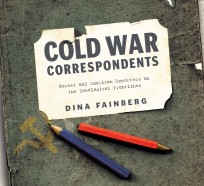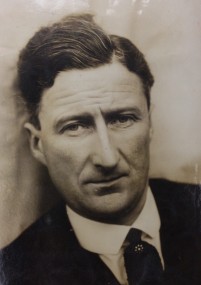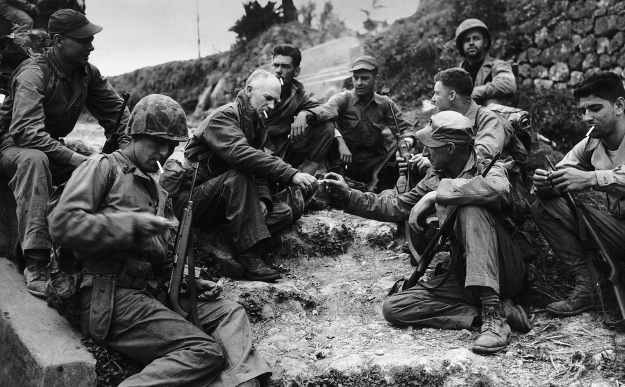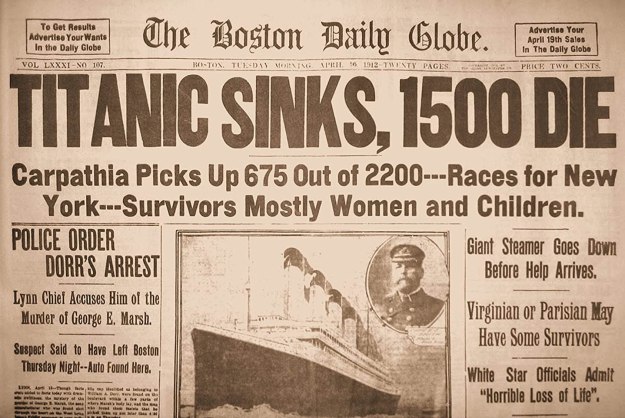
The History Division of the Association for Education in Journalism and Mass Communication (AEJMC) congratulates Dr. Elisabeth Fondren, Assistant Professor of Journalism at Collins College of Professional Studies, St. John’s University, New York, as winner of the 38th annual Covert Award for best mass communication history article, essay, or book chapter published in 2021.

The award memorializes Dr. Catherine L. Covert (right), professor of journalism at Syracuse University. Dr. Covert, who died in 1983, was the first woman professor in Syracuse’s Newhouse School of Journalism and the first woman to head the AEJMC History Division, in 1975. The award has been presented annually since 1985 (see https://aejmc.us/history/about/covert-award/)
Dr. Fondren’s winning submission, “Fighting an Armed Doctrine: The Struggle to Modernize German Propaganda During World War I (1914-1918),” appeared in Journalism & Communication Monographs, 2021, Vol. 23(4) 256-317.
Upon learning the news of her honor, Dr. Fondren replied: “Journalism & Mass Communication Monographs editor, Linda Steiner, as well as the late Michael S. Sweeney, were very encouraging of this project and supported me throughout the conceptualizing and writing process. Others, including my dissertation advisor Jack Hamilton, helped in shaping the arguments, and Erin Coyle provided important advice and was instrumental in modeling an institutional culture of care.
“I was very lucky to be paired with Mike Sweeney for the AEJMC History Division 2019 mentorship program, and Mike continued to provide unbelievable (!) support of my work and focus on international propaganda/journalism history throughout his illness. We spoke as late as early December 2021, when I shared a picture of my then 10-month-old daughter with him. I will forever treasure this opportunity and that I have had the chance to learn from – and with him.
“I am truly thrilled. And I look forward to seeing you in Detroit later this summer to accept this prestigious award.”
“Fighting an Armed Doctrine” attracted favorable attention during multiple rounds of judging, according to Covert Award Chair, Dr. Tom Mascaro. It was a clear winner in an outstanding field of entries analyzed, grouped, and ranked by a dedicated, diligent group of judges, according to Mascaro, who added: “Dr. Fondren’s research is a model of journalism history. Elisabeth asked an open-ended, pertinent research question—how did German officials respond to failures of their propaganda machine during the first World War?—and used foundational methods of primary-source archival historical research to not only resolve the basic question, but also inform our contemporary understanding of modern propaganda strategies. I see the sage hand of Mike Sweeney in Dr. Fondren’s research, as it transcends national boundaries and expands the record of international journalism history. “Fighting an Armed Doctrine” informs propaganda studies and human communication history, especially the rise of audiovisual forms, in larger contexts including, sadly, as used by today’s belligerent warring nations and irrational conspiracy theorists in American politics.”
The History Division will honor Dr. Fondren and present a check for $400 as part of the annual AEJMC convention in August 2022 in Detroit. The abstract for Dr. Fondren’s essay follows:
Abstract: During the First World War (1914–1918), all belligerent governments realized that propaganda proficiency was critical to selling their causes and stirring up support for the war. Yet German propagandists in particular struggled to master mass media, manage their messages, and build audience trust during the Great War in their goal to control domestic and foreign public opinion. Although previous scholarship has agreed that the German propaganda machine failed, little has been said about how Germany recognized these failures early on and sought to remedy them through increasingly modern propaganda strategies—even if those strategies were ultimately no match for the public’s growing distrust of official information. This monograph examines how it was that more institutions, more manpower, new publicity initiatives, copying tactics from enemies, crowdsourcing ideas, and eventually focusing on visuals and film did little to boost morale at home or improve Germany’s reputation abroad. The findings rest on a historical analysis of military dispatches, federal policy documents, letters, news stories, propaganda materials, and memoirs located in German and U.S. archives. Although many of the methods and tactics these early propagandists used would fail, others would become part of the universal toolbox governments still rely on to influence people’s views and spread information.
For additional references on Dr. Covert, see:
https://surface.syr.edu/cgi/viewcontent.cgi?article=1063&context=sumagazine






















